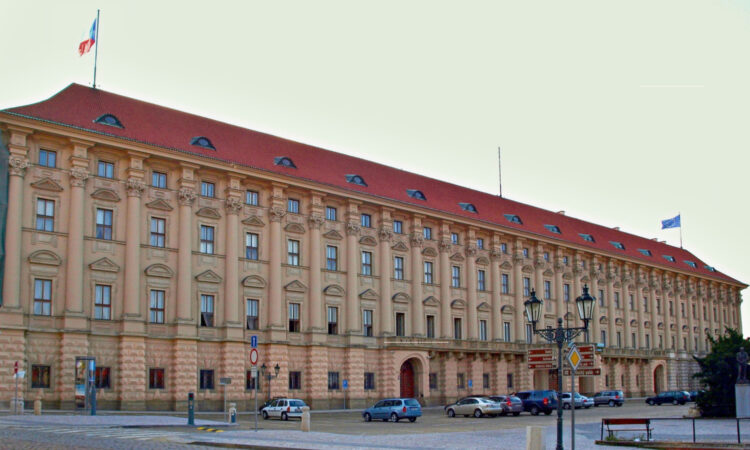Prague European Summit 2021: Europe Reborn

Prague European Summit is a strategic platform set to tackle pan-European questions in light of the common challenges. Setting EU trends of the future through dialogue with the highest levels of the European public and private sphere. Strengthening the role of the European Union in the world, while building sustainable and resilient society.
Founded in 2015 by the EUROPEUM Institute for European Policy and the Institute of International Relations under the umbrella of the Czech Ministry of Foreign Affairs. The summit’s objective is to provide an avenue for the debate of a wide-range of defining, momentous issues for European politics and societies, while at the same time providing a space for the discussion of particular Central European perspectives on those fundamental issues facing European continent. Summit has previously hosted top-level individuals, such as Federica Mogherini, Margot Wallstrom, Vaira Vike-Freiberga or various ministers, think-tank directors and top company representatives.
Within the overarching theme of “Europe Reborn”, the 2021 and 7th edition of Prague European Summit will run three main spotlight themes. The first will be focused on the post-pandemic recovery. As the coronavirus-related health crisis appears to be slowly passing its most critical phase, European politicians and citizens will be increasingly focused on questions of how to restart the economies of the EU once the storm has passed. Addressing issues such as the climate and digital transformations, economic inequality, health or social fragmentation in light of the pandemic.
The second spotlight theme will be centred on re-ordering of the EU’s relations with the outside world and the calls for strategic autonomy of the Union. This external will not be only focused on security-, foreign- and defence-related issues, it will also take into account the economic, trade and digital aspects of the EU’s aspiration to maintain and enhance its global relevance. Addressing questions of how Europe wants to restore multilateralism and uphold the liberal international order; how does the EU want to structure or transform the future of transatlantic relations after the election of Joe Biden and where can be a window of opportunity to do that; what are the international political upsides and downsides of the European efforts to build its strategic autonomy, the EU’s relations with the Asian and Pacific regions of the world, and the EU’s relations with its direct surroundings, via its Neighbourhood Policy schemes.
In chartering through these various issues, debates at Prague European Summit should have policy-oriented focus. They should strive to provide blueprints as regards the future development of European policies. The focus should thus not only be on the theoretical aspects of the debated issues and related controversies, but also on the practical aspects related to how policies can be developed. Prague European Summit should thus question generally accepted policy positions and look for new policy-oriented approaches to meet the challenges facing Europe.